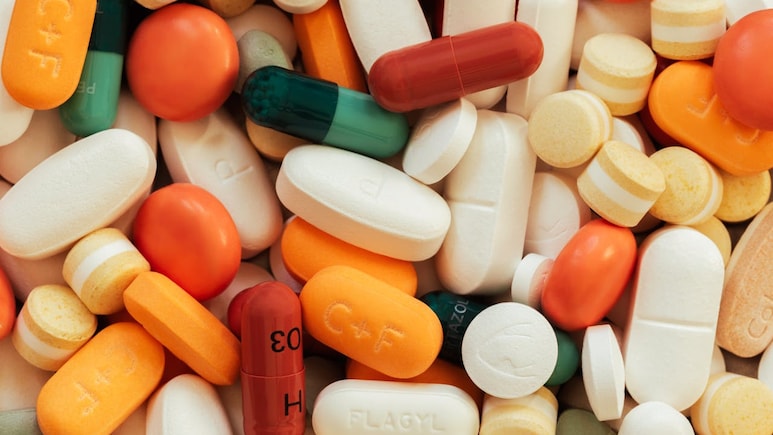
Every year, World Antimicrobial Resistance (AMR) Awareness Week, observed from November 18 to 24, is a reminder that antibiotics, once considered miracle medicines, are losing their power. The World Health Organization (WHO) has identified AMR as one of the top global health threats of the 21st century. Drug-resistant infections already cause an estimated 1.27 million deaths annually, and this number may rise sharply without urgent action.
The problem is not just in hospitals, it begins in homes, clinics, pharmacies and communities, where unnecessary or incorrect antibiotic use fuels resistance. In India, where antibiotics are widely accessible, overuse has accelerated the spread of "superbugs" that withstand even last-line medicines. WHO warns that without responsible use, common infections, minor injuries and routine surgeries may become high-risk procedures.
To understand what is at stake and how careful prescribing can protect public health, NDTV spoke with Dr J. Kirtana, Associate Consultant - Infectious Diseases, Fortis Hospital, Shalimar Bagh, Delhi. She explains why antibiotic misuse is dangerous, how doctors ensure rational prescribing, and what every patient must know to safeguard these life-saving drugs for the future.
Why Unnecessary Antibiotic Use Is Harmful
Antibiotics are vital for treating bacterial infections, but when used repeatedly or without need, they cause long-term harm.
Dr Kirtana explains: "Frequent or unnecessary antibiotic use can have serious consequences at both the individual and community levels. Beyond driving antibiotic resistance...such misuse disrupts the body's normal microbiome...Over time, infections once easily treatable can become deadly due to resistant 'superbugs,' now recognized by the World Health Organization (WHO) as a major global health threat."
Scientific evidence supports this. WHO notes that antibiotic misuse accelerates the evolution of resistant bacteria, while research from the National Institutes of Health (NIH) shows that repeated exposure can damage the gut microbiome, increasing vulnerability to infections like Clostridioides difficile.
Before Asking For Antibiotics, Patients Must Know This
A major driver of resistance is demand for antibiotics to treat viral infections such as colds, coughs, flu or most sore throats, all illnesses that antibiotics cannot cure.
According to Dr Kirtana: "Antibiotics should never be self-prescribed or taken without medical advice. Patients should consult their doctor to confirm whether an antibiotic is truly needed...understand the correct dosage, frequency, and duration...and potential side effects or warning signs to monitor."
The CDC also warns that antibiotics do not work against viral infections and that inappropriate use increases side effects without benefits.
How Doctors Ensure Responsible Prescribing
To reduce misuse, clinicians follow evidence-based protocols, confirm bacterial infections where possible, and reserve antibiotics for genuine medical indications.
Dr Kirtana explains: "Doctors follow a structured, evidence-based process when prescribing antibiotics after a detailed patient evaluation. Treatment is tailored to the site of infection and severity...Infectious disease specialists play a pivotal role in promoting rational antibiotic use and leading efforts to curb antimicrobial resistance."
Hospitals increasingly rely on diagnostic stewardship, such as culture tests and rapid molecular assays, to avoid unnecessary antibiotic exposure. WHO recommends that antimicrobials be used only when necessary and that prescribers choose the appropriate drug, dose and duration.
Antimicrobial Stewardship (AMS): The Heart of AMR Prevention
Countries worldwide are adopting AMS programmes to ensure antibiotics remain effective.
As Dr Kirtana notes: "We focus on the right indication, right drug, right dose, right duration, and confirm infections with appropriate tests. These decisions are strengthened by implementing Antimicrobial Stewardship (AMS) programs...There is also a strong focus on prevention through vaccination and infection control, reducing the need for antibiotics in the first place."
WHO and the United Nations strongly support AMS because it helps hospitals track resistance patterns, reduce unnecessary prescribing, and protect last-line antibiotics like carbapenems and colistin.
This year's global theme, Act Now: Protect Our Present, Secure Our Future, reflects the urgent need to prevent a post-antibiotic era in which routine infections become life-threatening.
Why Completing Antibiotic Courses Matters
Stopping antibiotics early or taking leftover doses contributes directly to resistance.
Dr Kirtana emphasises: "Always complete your prescribed antibiotic course, even if you feel better...Never self-medicate, especially for viral illnesses...Responsible use helps ensure these life-saving drugs remain effective - for you, your community, and future generations."
The European Centre for Disease Prevention and Control (ECDC) and WHO echo this advice, noting that incomplete courses allow partially treated bacteria to survive and develop resistance mechanisms.
AMR Awareness Week 2025 brings an urgent reminder: Antibiotics are not unlimited resources. Their power depends entirely on how responsibly we use them today. As Dr Kirtana highlights, careful prescribing, infection-control measures, and public understanding are essential to stop the rise of superbugs. Completing prescribed courses, avoiding self-medication, and trusting medical guidance can protect antibiotics for future generations. The message is simple but vital - act now, or risk a future where common infections become untreatable.
Disclaimer: This content including advice provides generic information only. It is in no way a substitute for a qualified medical opinion. Always consult a specialist or your doctor for more information. NDTV does not claim responsibility for this information.
Track Latest News Live on NDTV.com and get news updates from India and around the world

